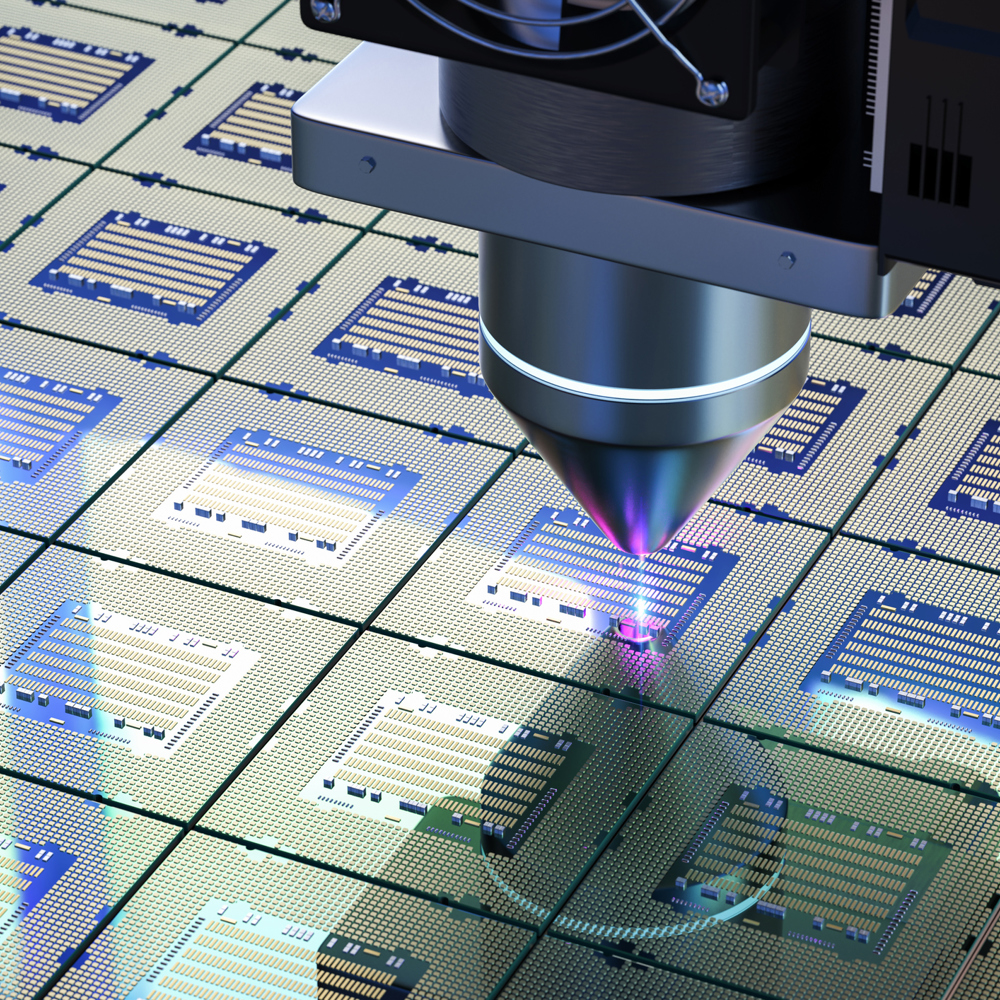Trailblazing the Future of Semiconductor Manufacturing
To keep up with global demand, one of the world’s leading semiconductor manufacturers unveiled plans to significantly expand its production capacity in Southeast Asia. RoviSys played a key role in getting the new fabrication plant up and running in record time.
The world’s insatiable appetite for consumer and industrial electronics is driving unprecedented growth in the semiconductor industry. In fact, semiconductor chips have become so vital to the global economy that modern society no longer can survive without them. According to the Semiconductor Industry Association, global semiconductor sales totaled $574.1 billion in 2022 – an all-time high.1 Some research firms project that annual global sales will top $1 trillion by the end of the decade.2
In 2021, this global leader in feature-rich semiconductor manufacturing announced plans to build a new manufacturing plant at its existing campus in Southeast Asia. The goal for the new semiconductor fab (fabrication plant) is to meet surging global demand for its semiconductor chips used in vehicles, smartphones, wireless connectivity, Internet of Things (IoT) devices and other applications.
1Increase Despite Slowdown
2Fortune Business Insights
2McKinsey Trillion Dollar industry


The Problem
With global semiconductor demand surging, chip foundries are under enormous pressure to ramp up their production capabilities. In many cases, that means quickly building new fabrication plants.
Designing, building and equipping a new fabrication plant is a complex and expensive undertaking that’s fraught with technical challenges. In semiconductor fabs, maintaining the optimal environmental conditions required for the production process is critical to ensure efficient and effective operation. Even minor deviations from the desired conditions can lead to contamination or defects in the final product – resulting in yield losses, delays and increased costs.
With product quality and consistency at a premium, fabs require a high level of control and automation. To prevent production disruption and ensure maximum uptime, it is essential that a fab’s automation system is designed with high-availability features that can minimize system downtime and swiftly recover from any unexpected faults or failures.

Our Role
The expansion includes 250,000 square feet of additional cleanroom space and new administrative offices on the company’s campus in Southeast Asia. The customer engaged RoviSys to implement the automation technology for the facility monitoring and control system (FMCS)/building management system (BMS), ultrapure water system and process vacuum system.
With a proven history of integrating advanced control and automation solutions for complex manufacturing environments – including a track record of successful implementations in the semiconductor industry – and international offices in Singapore, Taiwan, and Indonesia, RoviSys was the ideal integration partner for this project.
RoviSys has established strong, long-term relationships with a wide range of vendors, providing depth and breadth of platform experience. For this project, RoviSys leveraged its expertise as an audited and certified Siemens Solution Partner to implement high availability, state-of-the-art control technology. To deliver this project on time, more than twenty (20) RoviSys engineers worked on the design, implementation and commissioning of the system.
The successful implementation of the redundant S7-400H and ET 200SP HA has established a new template for future fabs as the company continues to expand its production capabilities to address the global semiconductor shortage.

The Solution
PROFINET, an open industrial Ethernet protocol based on international standards, offers significant advantages in terms of high-speed data transfer, enhanced flexibility and reduced installation and maintenance costs. RoviSys collaborated closely with Siemens to implement a redundant, fault-tolerant SIMATIC S7-400H PLC with the SIMATIC ET 200SP HA distributed I/O system – leveraging the capabilities of PROFINET technology to improve system performance, reliability and flexibility.
Advanced capabilities include visualization of remote I/O fault detection, which eliminates the need for operators to physically inspect the machine when troubleshooting.

The Result
Just one year after breaking ground on the fab, the company celebrated the arrival of the first tool at the facility in June 2022. RoviSys completed its implementation of a complete FMCS in less than 10 months, while navigating hardware lead time issues and manpower crunch, pandemic restrictions, and the occasional site shutdown due to COVID-19 outbreaks.
When fully operational, the fab is expected to add capacity for 450,000 wafers per year. In addition, the successful implementation of the redundant S7-400H and ET 200SP HA has established a new template for future fabs as the company continues to expand its production capabilities to address the global semiconductor shortage.